Progress in technological innovations for autonomous and intelligent transport systems with entertainment, connectivity and information about location is advancing at a great pace with the involvement of industry, academics and various startups.
Various stakeholders are aiming to accomplish the technological requirements every now and then. Areas of advancement are safety, security, smart communication and an energy-efficient approach. Automotive industries are coming forward to develop and optimise various techniques and affordable adaptive products for integration in automobiles. Vehicle-to-vehicle and vehicle-to-infrastructure interfaces are playing a major role in these aspects for intelligent transport systems. Developments in navigation, traffic safety and decongestion issues are being addressed, and industries are trying hard to integrate with next-generation vehicles.
To address these issues, a strong and trained workforce is the need of the hour, and the present government is taking various initiatives through Make in India, Digital India and Skill India missions. Academic and research institutes are also putting in efforts in India to address the gap areas in smart automotive systems through constant interventions via academic and research activities. The role of industry and academic partnerships is prominent and will make these possible in next few years. Emergence of the latest technologies as shown in Fig. 1 will support new automotive and auto infotronics dream into reality in the 21st century.
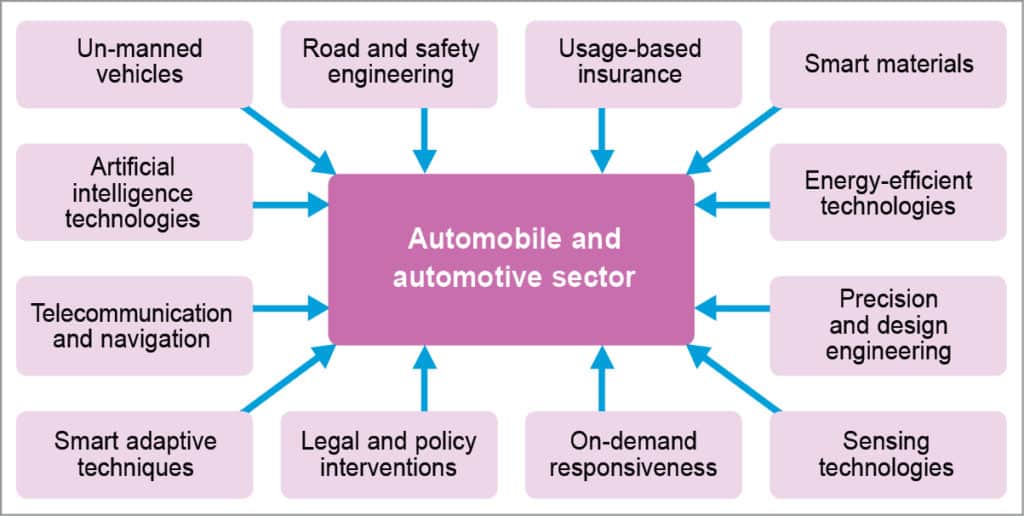
Automotive Mission Plan
The government of India’s Automotive Mission Plan (AMP) 2006-2016 has come a long way in ensuring growth for the sector. The Indian automobile industry is expected to achieve a turnover of ~ US$ 300 billion by the year 2026 and will grow at a rate of CAGR of approximately fifteen per cent from its current revenue of US$ 74 billion. AMP 2016-2026 will help the automotive industry grow and benefit the Indian economy in the following ways:
- Contribution of auto industry in the country’s GDP will rise to over twelve per cent.
- Around 65 million incremental number of direct and indirect jobs will be created.
- End of life policy will be implemented for old vehicles.
AMP 2006-2016 recognises the importance of the emerging technologies, which will carry forward the momentum of India’s success in the automobile sector to achieve the objectives set out in AMP 2006-2016, of increasing production, exports and skilled workforce that aims to create around 65 million jobs in the automotive industry.
Digital transformation in the automotive industry has compelled manufacturers to produce high-quality products in a competitive environment. This leads to better operational optimisation as well as cost savings for the accurate information of customer feedbacks and preferences.
Future roadmap
With radical developments and globalisation, the world is opening up newer avenues for the transportation industry in the domains of electric, electronic and hybrid cars, which are deemed more efficient, safe and reliable modes of transportation. Over the next decade, this huge shift will open newer verticals and opportunities for auto-component manufacturers, who would be forced to adapt to the change through systematic and high-end research and development through hi-tech infrastructures.
The Indian auto-components industry is set to become the third largest in the world by 2025. Indian auto-component makers are well-positioned to benefit from the globalisation of the sector as exports potential could go up to US$ 30 billion in the next five years.
Automotive Skills Development Council (ASDC) has active partnerships with various stakeholders in accelerating, catalysing and evolving the skilling ecosystem of India. ASDC aims to achieve its objectives through:
- Value-addition in automotive skills
- Integration of skills through academic/research support
- Recognising the achievements in the automobile sector
ASDC is expected to achieve the objectives through the approach shown in Fig. 2.
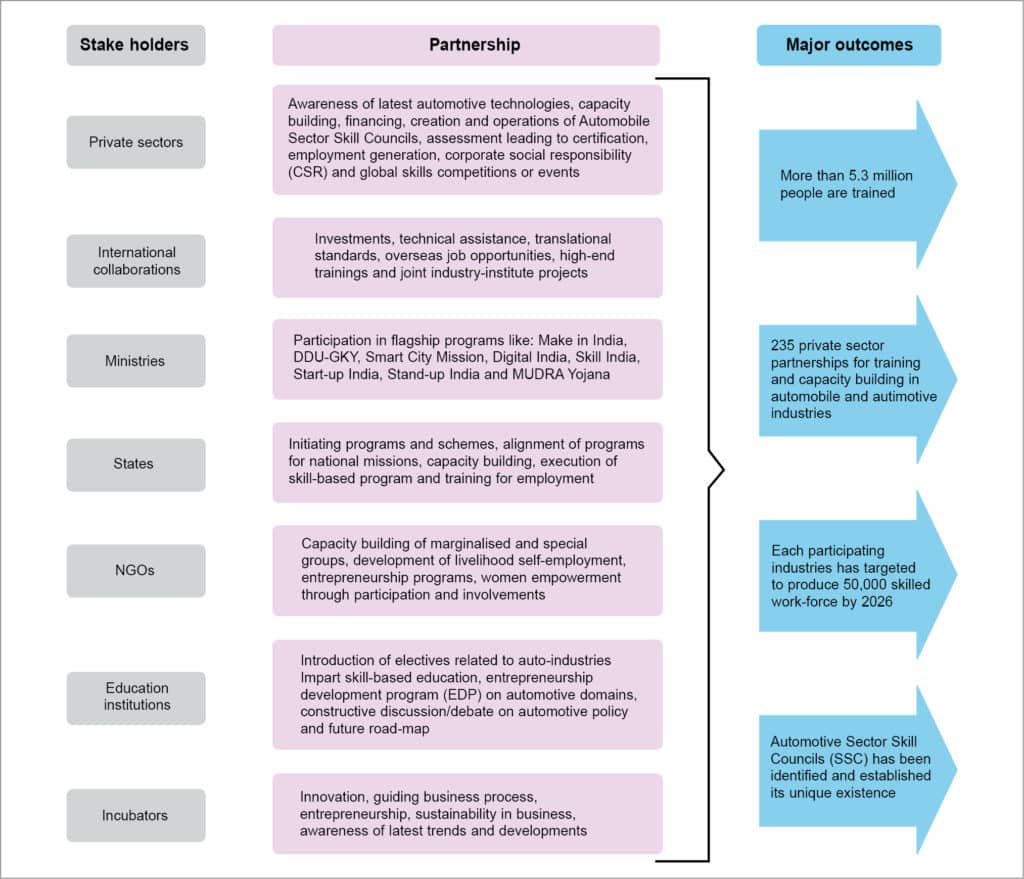
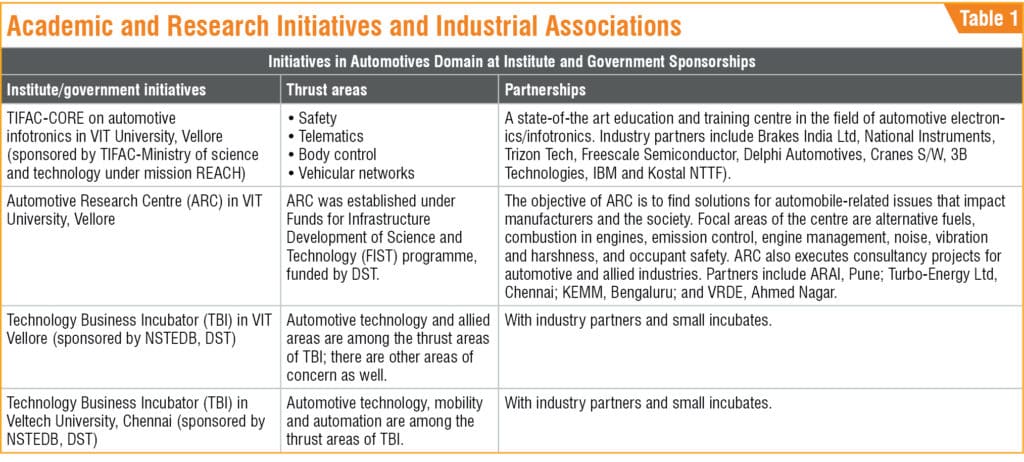
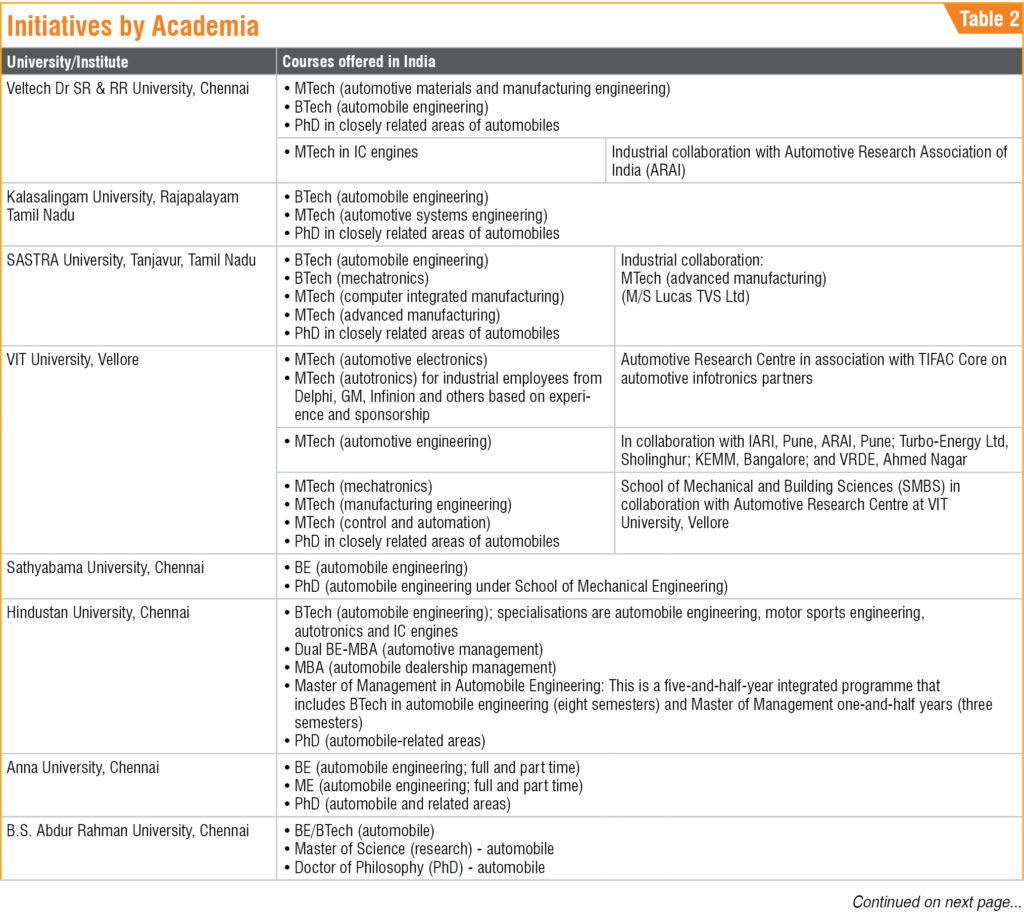
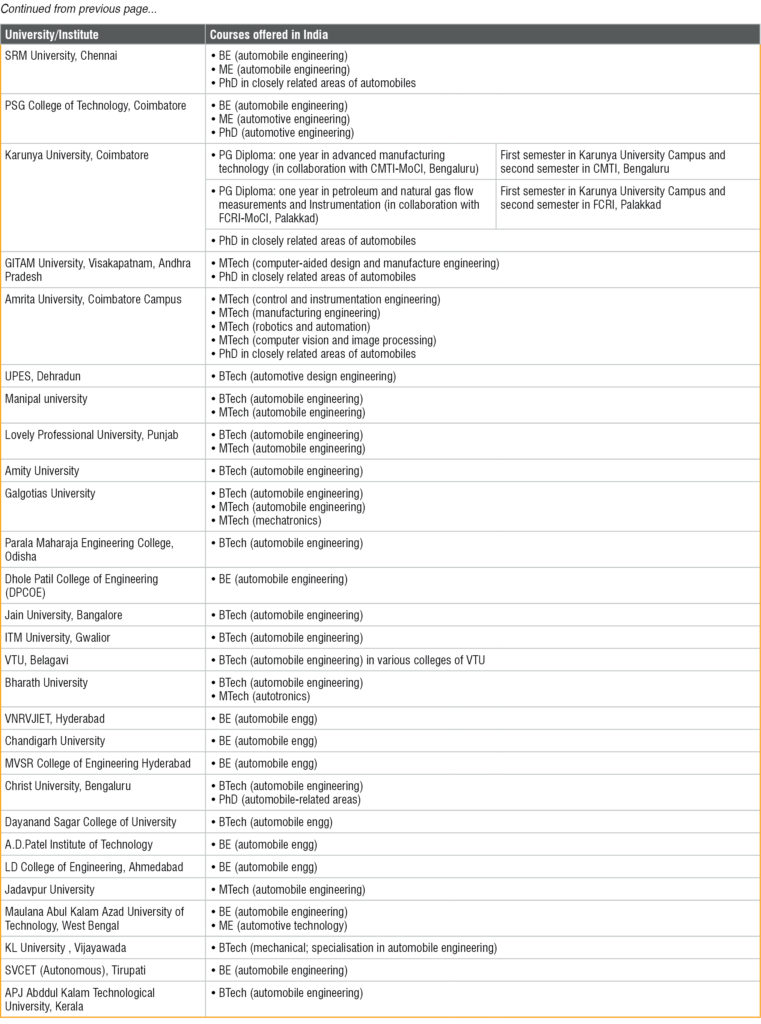
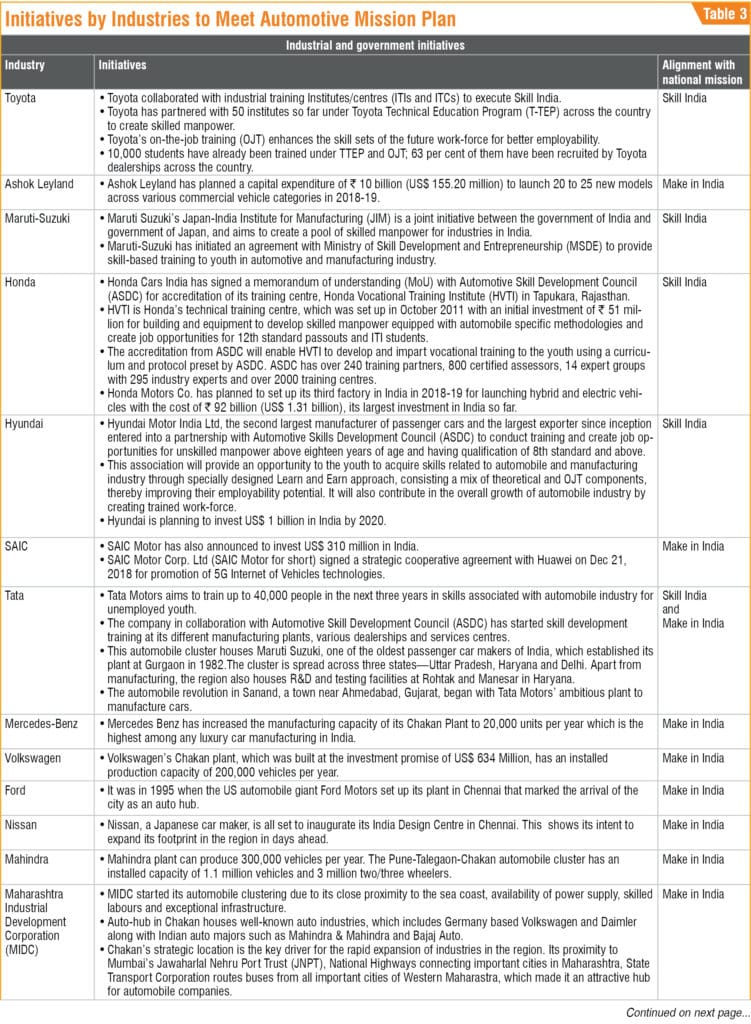
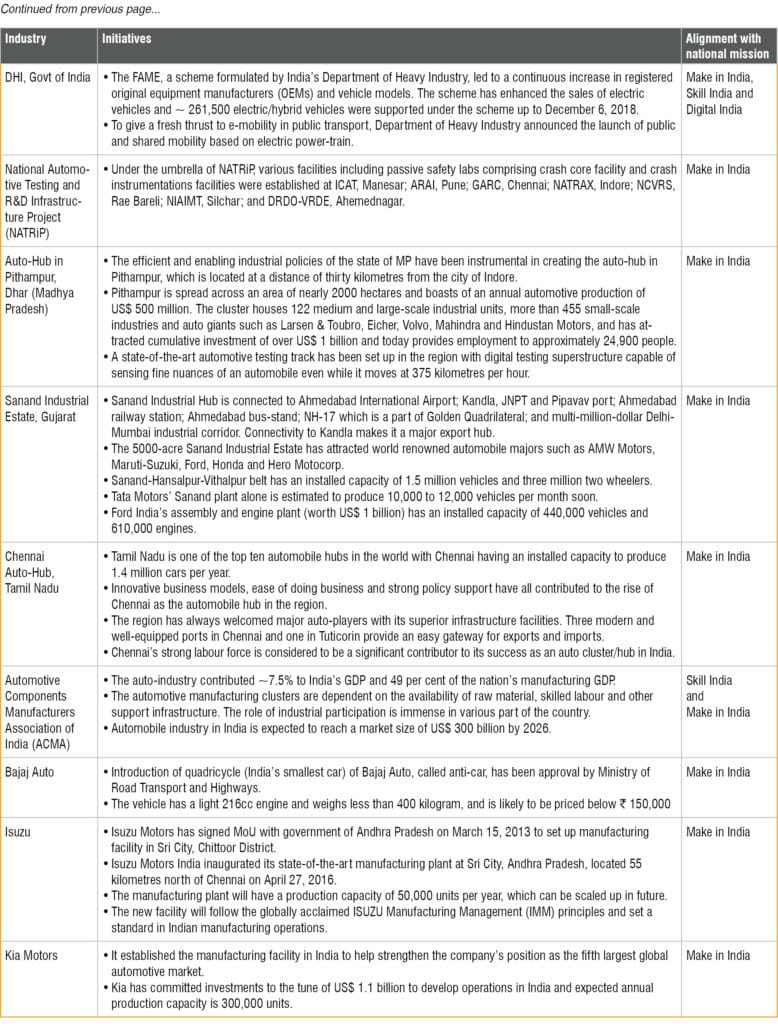
Subhranshu Sekhar Samal is head and co-ordinator (PMU), International Advanced Research Centre for Powder Metallurgy & New Materials (ARCI) and co-founder, Evergreen Association.







